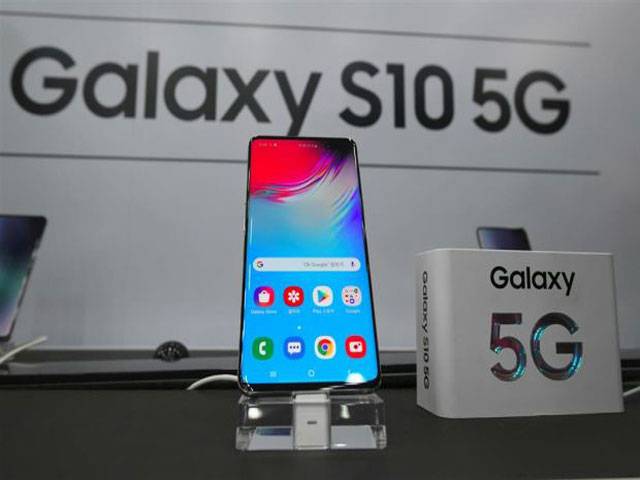SEOUL- Telecom giant Samsung Electronics on April 5 released the Galaxy S10 5G, the world’s first available smart-phone with built-in fifth-generation communications, as South Korea seeks to build a lead in the transformative technology. On April 3 the South became the first country to launch nationwide 5G services, with three superfast networks going live offering data speeds that allow users to download entire movies in less than a second.
Hours later US giant Verizon began commercial services in Chicago and Minneapolis, after rival AT&T made a 5G-based system available to selected users in parts of 12 cities in December.
South Korea’s three mobile carriers – SK Telecom, KT and LG Uplus – held launch events across Seoul for the Galaxy S10 5G, whose base version costs 1.39mil won (RM4,991).
Interactive virtual-reality displays and robot demonstrations were on show to tout the capabilities of the latest iteration of mobile internet speed, and new users were excited about the possibilities, especially live streaming of sports games and university lectures.
People wait in line to buy new Samsung Galaxy S10 5G smart-phones in front of an SK Telecom shop during a launch event in Seoul on April 5, 2019.
The world’s biggest smart-phone and memory chip maker Samsung Electronics warned of a 60 percent-plus plunge in first-quarter operating profits on April 5, in the face of a weakening chip market. Samsung was also launching its top-end Galaxy S10 5G smart-phone, after South Korea this week won the global race to commercially launch the world’s first nationwide 5G networks. People waiting in line to buy new Samsung Galaxy S10 5G smartphones in front of an SK Telecom shop during a launch event in Seoul on April 5, 2019.
“I watch a lot of videos often, movies and lectures,” said buyer Shim Ji-hye, 38. “I hope faster speeds will help me manage my time better.” The US has pressed its allies and major economies to avoid 5G solutions from Chinese-owned telecom giant Huawei, citing security risks that technological backdoors could give Beijing access to 5G-connected.






